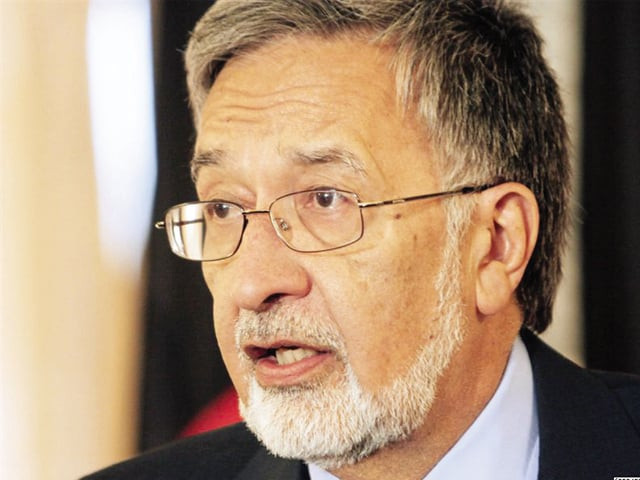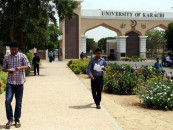The Afghan endgame: Islamabad, Kabul to propose end to combat
Pakistan's foreign minister meets with his Afghan counterpart Zalmay Rassoul in Islamabad.

But the idea is likely to pitch the two countries against Washington, which seeks to go hard against the insurgents before the coalition forces begin pulling out from Afghanistan.
As Afghan Foreign Minister Zalmay Rassoul arrives in Islamabad today (Thursday), the two countries have decided to put up a joint front at next month’s trilateral meeting with the US.
“We believe the time has come to initiate a political process in Afghanistan,” said a top Pakistani diplomat, who has been dealing with the issue of the Afghan war.
“Pakistan and Afghanistan will soon ask the US to cease the offensive and let the reconciliation process take centre-stage,” the official told The Express Tribune.
The proposal will be part of a joint strategy that Islamabad and Kabul are working out for their crucial meeting with the US in the third week of February.
The three-way consultations, at the level of foreign ministers, among Pakistan, Afghanistan and the US will discuss the Afghan endgame and the way forward.
The Washington meeting has assumed significance as it comes months before the US-led Nato troops start pulling out of Afghanistan by July this year. Pakistani officials say relations between Islamabad and Kabul have improved significantly in recent months, as the two neighbours have decided to move beyond their past. “There is a realisation now from both sides that we are the real victims of this ongoing war in the region … we are the real stakeholders and we need to come up with a joint approach,” said another official.
He acknowledged that the approach of Pakistan and Afghanistan to a war, which has entered 10th year, is not liked by the US at this stage.
“But, we see signs of policy shift from the Obama administration … they are also now talking about reconciliation,” he added.
However, he said, the stakeholders still have to cross many stumbling blocks before arriving at a consensus on peacemaking with the Taliban.
The Afghan foreign minister will hold discussions with Pakistan’s top political and military leadership on the reconciliation process.
In recent weeks, Islamabad and Kabul stepped up consultations on the Afghan endgame. Since Prime Minister Yousaf Raza Gilani visited Kabul in December last year, the two neighbours have had top-level exchanges.
Published in The Express Tribune, January 27th, 2011.



















COMMENTS
Comments are moderated and generally will be posted if they are on-topic and not abusive.
For more information, please see our Comments FAQ